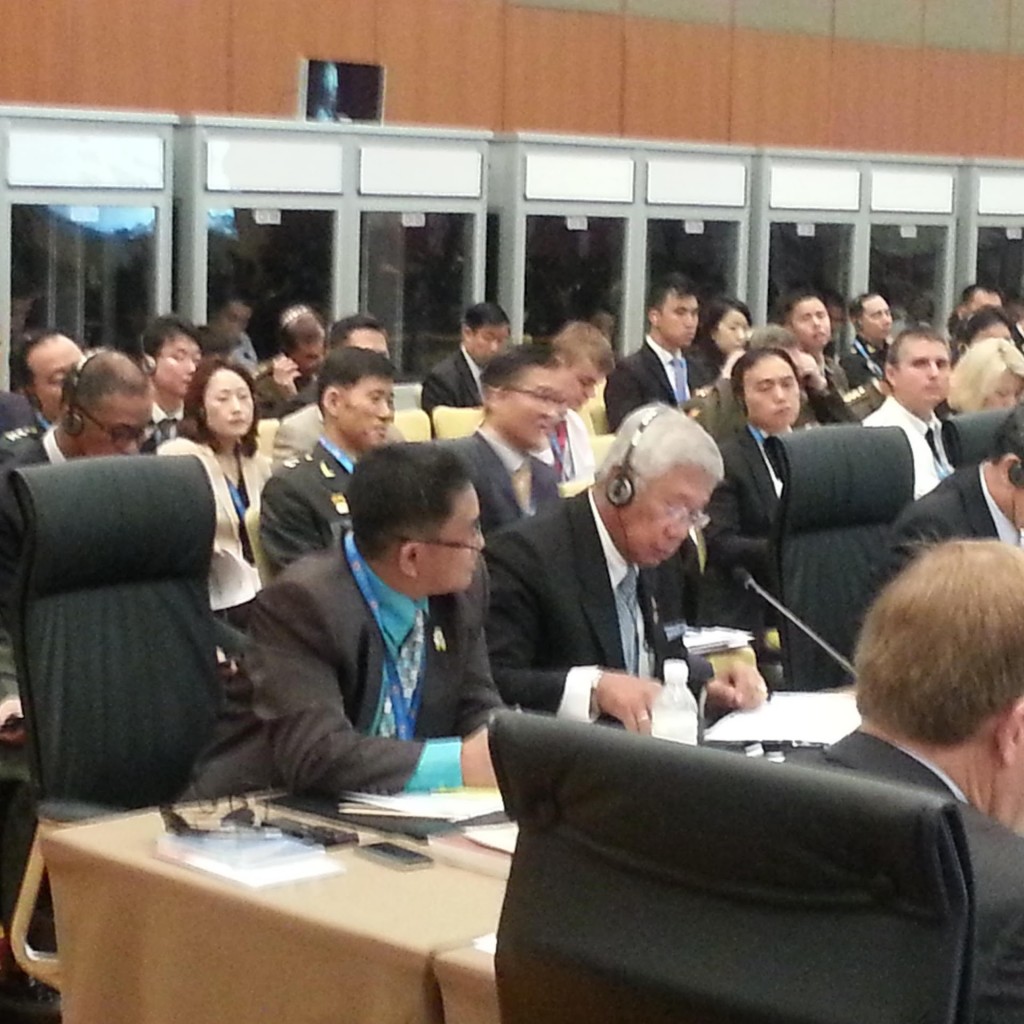Asean defense chiefs to pursue ‘non-violence principle’ in territorial disputes

Defense Secretary Voltaire Gazmin at the Administer Defense Minister Meeting Retreat in Brunei on August 28. DND Photo
MANILA, Philippines – Defense ministers from Southeast Asia, including the Philippines’ Voltaire Gazmin, have agreed to pursue a “non-violence principle” in resolving territorial disputes, the Department of National Defense said.
“The ministers explored initiatives that are intended to help reduce tensions and risks and manage potential conflict in the region. Such initiatives include proposals to establish a hotline platform, common lines and information sharing, and an agreement not to use force to address disputes,” the DND said in a statement issued Friday, days after the Asean Defense Minister Meeting (ADMM) Retreat in Brunei from August 27-29.
The DND did not mention the ongoing controversy surrounding the ownership of Spratly Islands in the West Philippine Sea (South China Sea), which, aside but from the Philippines, was also being claimed by Brunei, Malaysia, Taiwan, and Vietnam.
The retreat, an informal meeting among defense ministers, discussed future Asean defense cooperation in anticipation of establishing the Asean community by 2015, the DND said.
After the retreat, the defense ministers had an informal meeting with US Defense Secretary Chuck Hagel to discuss regional security issues and Asean-US political security cooperation. They also compared security outlooks.
Article continues after this advertisementHagel made a four-nation trip to Southeast Asia this week, with the Philippines as his last stop on Friday.
Article continues after this advertisementThe retreat was a follow up to the ADMM meeting last May. The ADMM is a formal meeting among the defense ministers of Asean member states and eight other countries: China, India, Japan, New Zealand, Republic of Korea, Russia, and the US. It was established to broaden defense and military cooperation between the Asean and its key external partners, as well as pool together resources to deal with common security challenges.
RELATED STORIES:
Hagel: US not seeking bases in PH but more ‘rotational presence’
For comprehensive coverage, in-depth analysis, visit our special page for West Philippine Sea updates. Stay informed with articles, videos, and expert opinions.